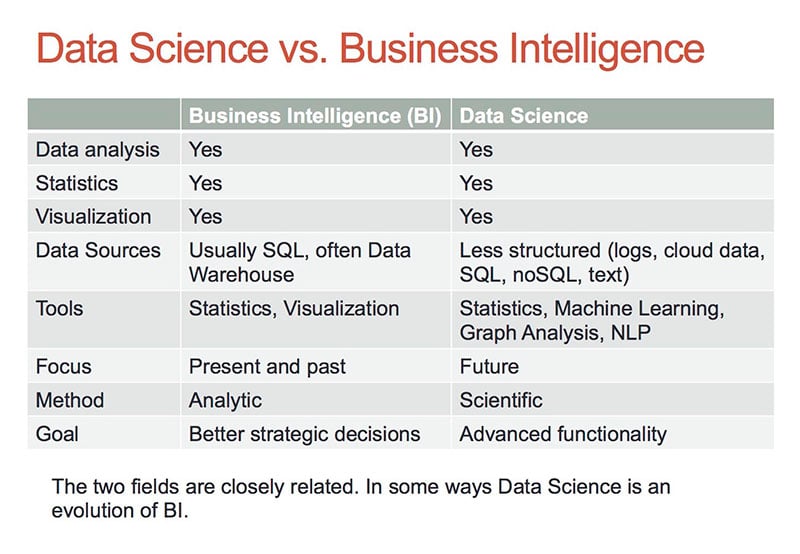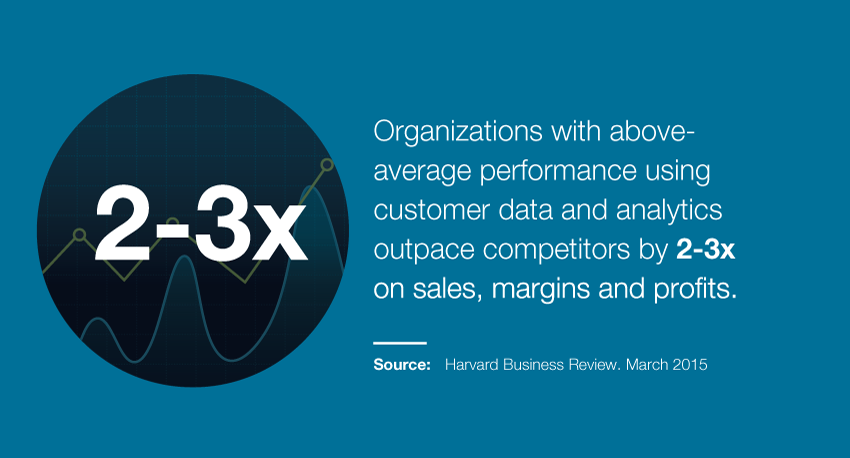As the e-commerce world progresses, online retailers are beginning to understand the importance of data science in their business activities. Furthermore, data science is starting to replace traditional business intelligence.
These retailers are also shifting their processes from using business intelligence (BI) to using data science. It is important for online retailers who still rely on BI to note that modern technologies are evolutionary. This means that as they are tying themselves to one technology, there is a new one that is getting ready to dominate the market. This article discusses the gradual shift from BI to data science and how the shift affects the e-commerce world.
Why Online Retail Shifted from Business Intelligence to Data Science?
Online retail businesses that seek to stabilize, grow and minimize risks can still use BI to their advantage. It is quite cheaper to access this technology and to recruit people who know how to use it. When compared to data science, this technology has few benefits to online retail businesses.
Business intelligence is only ideal for showing retailers common knowledge such as business risks and lost profits. Data science, on the other hand, can help retailers to identify problems that they didn’t know about. It also provides them with effective growth strategies that allow them to predict
future trends and incline their activities to these trends.
How Data Science is proving to be More Effective than Business Intelligence in Online Retail
When we try to compare the shift between BI and data science, it is like comparing the shift between the floppy disk and the micro SD card. It is general knowledge that the micro SD card succeeded the floppy. This parallel is also applicable to the data analysis methods that online retailers intend to use in the future. It is advisable for the practitioners in the e-commerce industry to accept the fact that data science is replacing BI in the following ways.
Manipulating Product Prices
For a retailer to be competitive in the retail industry, he or she needs to either raise or lower product prices based on what the competitors offer. Through data science, retailers can not only monitor their own transactions but also monitor price changes of their competitors. They can also make
real-time changes to their product prices without the fear of losing their edge over their competitors.
Unlike business intelligence, data science is also offering e-commerce practitioners a chance to shift from the traditional sales methods to the contemporary methods. E-commerce practitioners can now drop the product prices gradually rather than lowering the prices when product demands decrease. They also gain more control over their pricing decisions and processes.
Allocating Stock to the Right Stores
Online retailers usually experience difficulties when trying to find the right stores that they can allocate their stock. Data science can help them to examine factors such as the social data, macroeconomic conditions and weather conditions of each store location. It enables them to ensure that there is enough stock in their busiest stores and that the quieter stores aren’t overstocked.
Big data can increase online sales by 100 to 200 percent according to
a recent study. Online retailers should bear this fact in mind and increase their big data investments across the supply chain. They should aim at enlisting the help of data scientists or data science companies to gain insights on how to manage their HR, logistics and marketing departments using big data.
Building More Personalized Recommendation Systems
The shift from BI to data science gives online retailers a chance to build more personalized and complex recommendation systems. E-commerce giants such as Amazon are using this strategy to remain competitive in the retail industry. They use data-driven algorithms that provide their customers with product suggestions based on their previous searches and purchases. This strategy proves to be effective in
increasing an online store’s sales by 35 percent.
Personalized recommendation systems are also able to promote “long tail items”, which are products that don’t drive lots of revenue. Online retailers can actively target their customers with these products to move stock and boost their sales by turning them into personalized recommendations.
Finding New Target Customers
The BI to data science shift is enabling e-commerce companies to reach and find new target customers. E-commerce companies with data-driven business activities are more likely to
reach new customers as compared to those that still use the traditional BI methods in their activities. They are also likely to experience a tremendous growth in their sales revenue and move more stock.
With the help of data science, e-commerce companies can move forward towards new data. Their past mistakes will no longer slow down their growth pace. They can use data science to conduct large-scale customer studies in different geographical locations over a certain timeframe to find the most ideal customers. They can also assess the purchasing decisions and factors such as gender, income level, age and product preferences of the target consumers.
Final Thoughts
If online retailers are unable to invest resources in data science, they can use business intelligence instead. Some of them may find it difficult to hire data scientists or seek services from data science companies because they are quite expensive and are in high demand. These retailers should note that business intelligence is gradually fading away and that data science is taking over the online retail industry. It is high time for them to figure out ways in which they can invest in data science to keep up with this shift.



